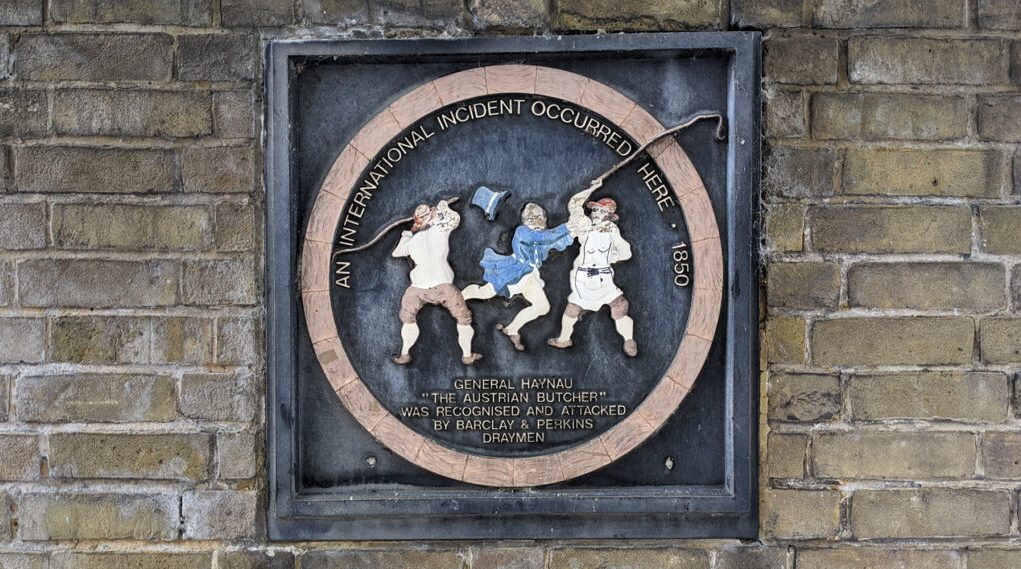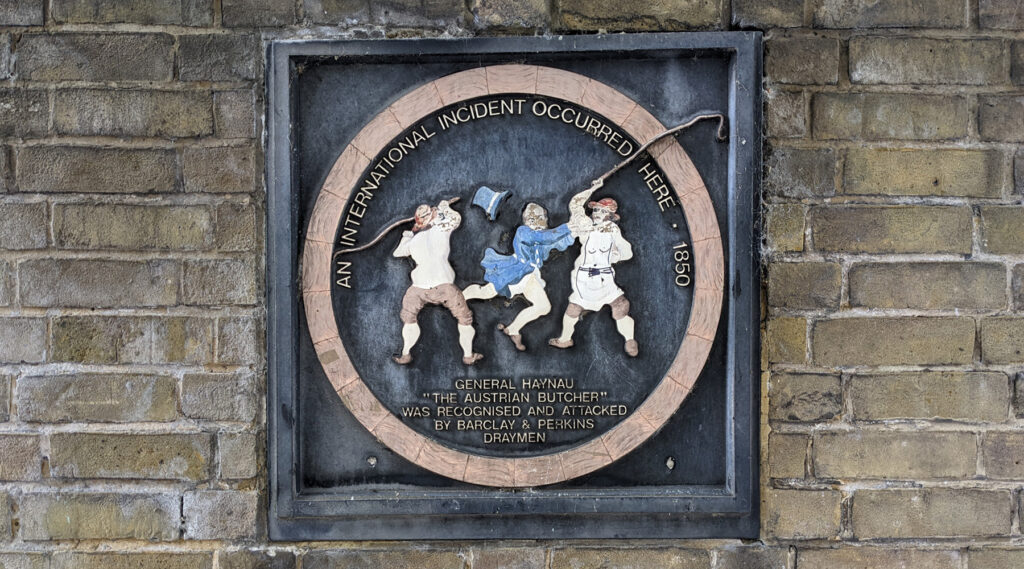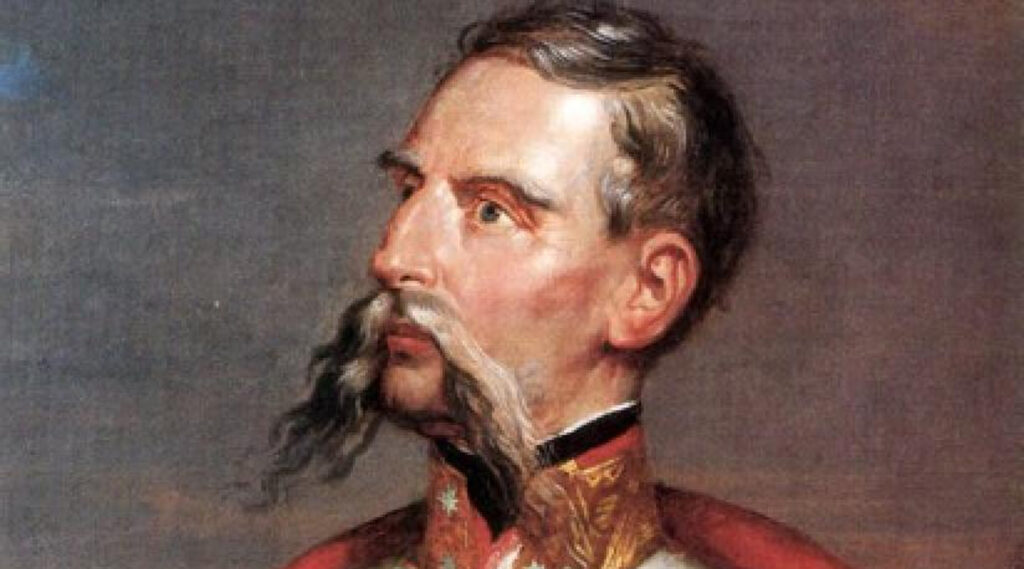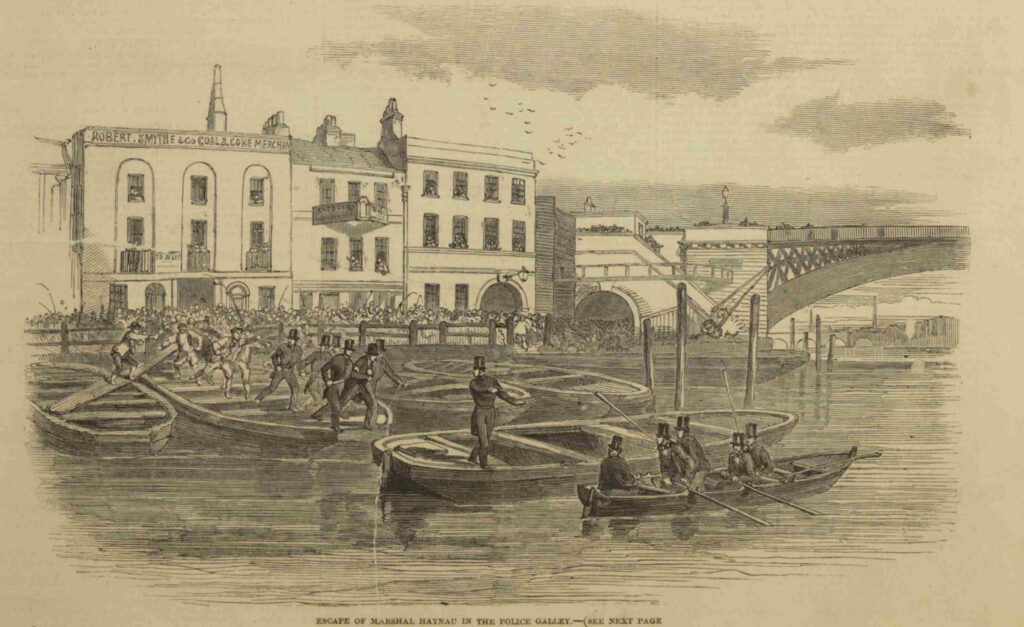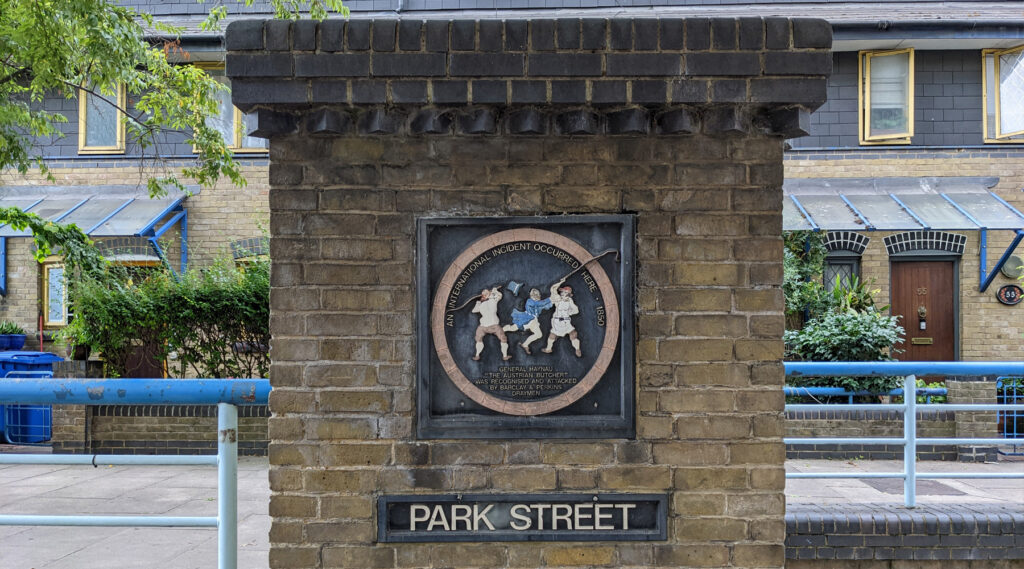On a Southwark side street, you can find a small plaque that reminds people that in 1850, “an international incident occurred here”, when an Austrian general was attacked by a mob.
But why would an Austrian general be in London, and why was he attacked?
The person was Julius Jacob von Haynau, an Austrian general who violently suppressed insurrectionary movements in Italy and Hungary. His early career saw many successes, but he was also said to have a violent temper.
In 1848 he gained notoriety when he was sent to put down a revolution by Hungarians, and his brutality became infamous. He was said to have ordered women whipped who were suspected of sympathizing with the insurgents, and the execution by hanging of 13 Hungarian rebel generals at Arad on 6th October 1849.
Opponents called him the “Hyena of Brescia” and “Hangman of Arad”, although Austrian soldiers referred to him as the “Habsburg Tiger” in admiration of his actions.
Although promoted, his temper kept getting him into trouble, and he resigned from his commission in 1850.
It seems then that he decided to travel, and later that year he found himself in London.
It was on Wednesday 4th September 1850 that General Haynau, accompanied by an interpreter and his nephew, visited the brewery of Messrs Barclay and Co on Park Street in Southwark. The brewery had recently been rebuilt and was regularly accepting visitors who wanted to see its modern equipment. When asked to sign the visitor’s book, one of the clerks recognised the name of the General, and within minutes the whole brewery knew who was visiting — none other than the Austrian Butcher.
As the General inspected some of the brewing vats, he was surrounded by hecklers and tried to leave. He was attacked. Someone threw a truss of straw from overhead, and others started throwing grain and objects at him. His hat was knocked off, and his clothes were ripped. One of the men grabbed the General and attempted to cut off his beard, but he managed to wrestle free.
Having escaped the brewery, he was surrounded by a crowd of around 500 people, where he was surrounded and pelted with missiles. At one point he was dragged along by his long moustache, which was so long it reached his shoulders, and hence was rather easy to grab.
News reports of the time said that someone had shouted out “Oh, this is the fellow that fogger the women, is it!”, and started lashing at the General with their horse whips. Other cries of “shove him in the river” and “down with the Austrian butcher” were heard as the crowd attacked him.
He managed to escape to the George pub on Bankside, where he was trapped. By now, the police had been called, and they were able to extract the General and take him away on a boat towards Somerset House.
The press reports of the time are mixed, being both condemning the lynching of the General, and that such an important person should be so treated, and concerned that the rule of law had broken down, but also that the General was hardly the sort of person to elicit much sympathy for what happened to him.
The issue flared up again a few months later, when it was revealed that although representatives of the Emperor of Austria has insisted that the perpetrators be prosecuted, General Haynau had refused to assist them in identifying them.
Although put under some pressure to find some way of prosecuting the attackers, with Austrian diplomats asking the government to set aside its usual course of justice to ensure a conviction, the British government refused to support a prosecution unless General Haynau assisted the police in identifying the attackers.
The British government left the matter unresolved but made it clear that they had no inclination to prosecute the attackers, and that if the Austrian government persisted, any court case would undoubtedly give more publicity to the General’s abhorrent actions.
The visitor’s book that he signed on that day, had his name scrubbed out by the brewery.
General Haynau died in February 1863, by suicide.
A year later, when the Italian revolutionary, Giuseppe Garibaldi, visited England he made a special visit to the brewery to thank the staff there for the greeting they had given to the Austrian Butcher some years before.
Today, a plaque stands on Park Street, roughly at the location of the entrance gate to the old brewery.
This article was published on ianVisits
SUPPORT THIS WEBSITE
This website has been running now for just over a decade, and while advertising revenue contributes to funding the website, but doesn’t cover the costs. That is why I have set up a facility with DonorBox where you can contribute to the costs of the website and time invested in writing and research for the news articles.
It’s very similar to the way The Guardian and many smaller websites are now seeking to generate an income in the face of rising costs and declining advertising.
Whether its a one-off donation or a regular giver, every additional support goes a long way to covering the running costs of this website, and keeping you regularly topped up doses of Londony news and facts.
If you like what your read on here, then please support the website here.
Thank you
The post The day Londoners humbled an Austrian tyrant appeared first on ianVisits.

